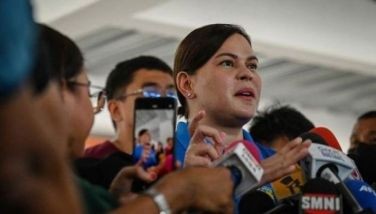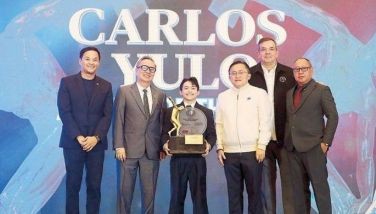Culture and nation

In the early 1980s, in the last years of the Marcos dictatorship, Dr. Klaus Zeller came to Manila as West Germany’s ambassador. The young diplomat’s Ph.D. dissertation was on the new nations of Africa. He had also read Rizal.
We were having a discussion on nationalism, and I observed that some nations were the creation of military leaders – Kemal Ataturk of Turkey, Garibaldi of Italy, and Bismarck of Germany. Klaus corrected me immediately. The soul of the German nation, he said, was shaped by artists – Goethe the novelist, Schiller the poet, and Beethoven, the composer.
So then, what is Greece without Homer, England without Shakespeare, Spain without Cervantes, and the Philippines without Rizal – men not with swords but with pens?
There are no “instant” nations. Their building takes centuries and they are formed not only by geography and a society’s own culture, but also by the interaction with other cultures, and almost always, as a colonized people, by the response to colonialism.
Creative writers, deeply rooted in their native soil and its past, transform folktales and myths into literature. When Nick Joaquin uses Filipino superstitions in his short stories, and when I synthesize the Filipino reality in my novels, what we are doing is endowing our work with a distinctive Filipino patina and timbre, recognizable for its unique particularity and understood as well for its universality. We give our art an infrangible identity, an intrinsic and perhaps lasting longevity achieved not by flag waving or drum beating.
Leonor Orosa Goquingco extracted the martial movements of the Ifugao war dance and transformed it into “Ifugao Suite.” It was stirring. I watched it with the “shock of recognition” – a folk ritual dance transformed into Filipino modern dance, and destined to be a classic.
This is the challenge to all Filipino artists – how to give our art and culture a distinctive Filipino face, and with it unite a fractured nation in its quest for justice and a better life.
What empowers the artist is his rootedness in the land, his knowledge of his past, and his oneness with his own people. It is his personal striving for excellence, achievable only by hard work, passion, and the capacity for self-criticism. In fact, the artist should learn to be his own sternest critic. Critical thinking is an absolute necessity not only in cultural development but also in nation-building.
And so, we look at our culture now and realize that we have inherited the vices of our colonizers, not their virtues. I don’t think that a pristine culture exists today. Culture is never static. It is subject to so many influences. We do not have to stray too far from the attitudes that pervade our society – how everything American is appreciated, that our writers, for instance, don’t consider themselves successful until they are published in America or theater artists, too, have their eyes focused on Broadway. Much of this is also the impact of globalism. As Mahatma Gandhi said, “I want the culture of all lands to be blown about my house as freely as possible, but I refuse to be blown off my feet by any.”
We have been blown off our feet. The American writer, James Fallows, put it differently, perhaps kindly. He said we have a “damaged culture.” Many Filipinos resented that label. Perhaps I was more sanguine. I said we are shallow, and this made many Filipinos angry. But look at our asinine media, our slapstick movies, our crass politics – objective truths we must confront and undo. Cultural development broadens and deepens our understanding of ourselves, our country; it enables us to think critically. With the internet, information is now available even to our very poor. We know now, for instance, that many of our leaders are rapists, corrupt, and even murderers. But we raise them to exalted pedestals, we elect them to the highest office. How do we get out of this rut?
I have been talking with young people. This is a generation so far removed from mine. The young are very adept with technology, with new gadgets, with new ways of communication, which give them instant knowledge, entertainment, and wider reach and influence. If they are in college, their immediate goal is to graduate so they can leave the Philippines for a better livelihood, to fulfill their dreams. How can we anchor them to their native land, to have pride in themselves as Filipinos and in their country?
A few of them are considering rebellion. They are eager to know what they must do. I tell them to strive for excellence and virtue, the Socratic precepts that are valid to this very day. I tell them to be engaged, to be activists for the future is theirs to fructify and reap. I tell them we were once the best in Southeast Asia but our leaders failed us, my generation failed us. They must not fail themselves. We do not deserve this government, this incompetence and decay. I tell them to know our history. Rizal, Mabini, Bonifacio, del Pilar – they were all very young. What did they achieve? They mounted the first armed resistance to western imperialism in Asia. They also established Asia’s first republic. They left us this legacy, this revolutionary tradition; more than anything they remind us that indeed, we are a talented and heroic people.
- Latest
- Trending




























